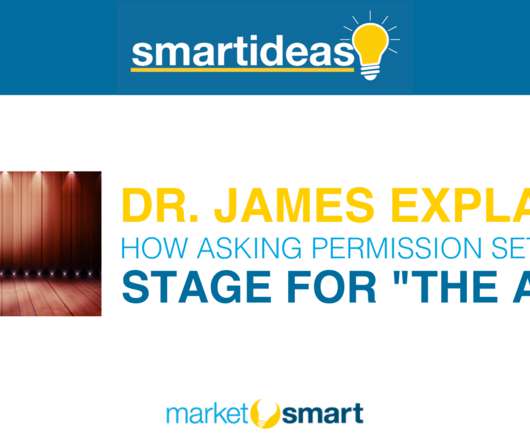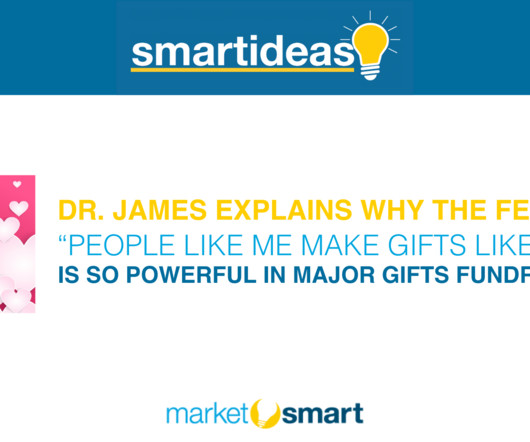Dr. James Explains How Asking Permission Sets the Stage for “The Ask”
iMarketSmart
FEBRUARY 6, 2023
More time can help. More time can help. Options that take time and effort to construct feel more valuable. People tend to predict they will help. This prediction is higher than the actual help they would have given if asked immediately. Getting people to first predict their actions increases helping.











Let's personalize your content